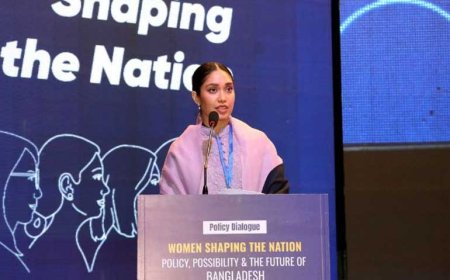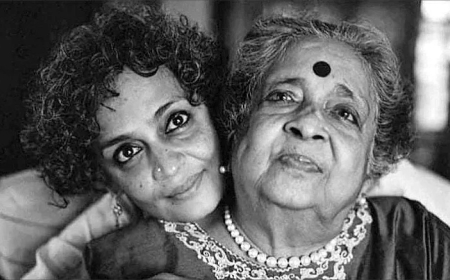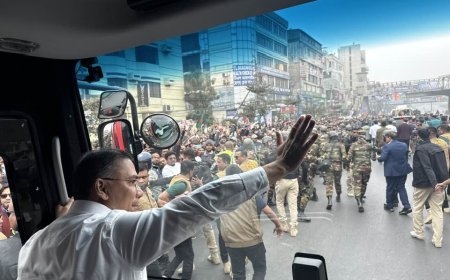How To Reach Consensus On Reform
The only meaningful item remaining on the reform agenda is whether an Upper House should be based on PR or not. Everything else can be sorted out without difficulty. We are closer to consensus than you think.

A version of the chart below, created based on the positions of the three main political parties on the issue of constitutional reform, has recently gone viral, sparking widespread discussion, and is extremely significant.
Over the past few months, based on discussions with BNP, Jamaat, NCP, and the Consensus Commission, I will compare the merits of the different items in this chart and the positions of the three parties. You will see in the comparison that the three parties are much closer than they appear.
My main focus will be to help you understand which items are important and which are minor, so you can move beyond the current propaganda and form your own personal position.
First Issue: Prime Minister’s Term Limit (No More Than Two Terms)
The Citizens Coalition has recommended this. BNP has proposed two terms + one additional term (with a break in between, allowing a third term), meaning a maximum of three terms.
The Citizens Coalition considers this critical to preventing an elected dictatorship. BNP’s argument is that countries like India, Pakistan, and the UK, whose models we follow, do not impose term limits on their prime ministers.
We pointed out that some countries do have term limits, such as Thailand, Cuba, Laos, and Mongolia. There is also a social consensus on this issue.
BNP’s counterargument was: “Fine, we agree. The Commission wants two terms, and we’re okay with three terms with a break in between.”
Is that too big a difference? I don’t know. You decide.
Second Issue: Electoral System
Here, BNP and NCP are aligned. Jamaat, along with various Islamic parties, wants parliamentary seat allocation to be based on voter numbers rather than constituencies.
The Commission has not recommended this. Their argument is that if seats are allocated proportionally based on votes, Bangladesh will never have a stable government.
Historically, no party in Bangladesh has ever secured 50% of the votes in any election, though they may have won almost all of the seats based on constituency results.
Moreover, it’s unclear how seat allocation based on votes would work. If you win a constituency and enter parliament, how would seats then be redistributed based on vote proportions?
This is fundamentally an unworkable idea. The Commission didn’t recommend it, neither did we, nor NCP, nor BNP. Only Jamaat has pushed for it. I believe Jamaat will back off from this.
Prime Minister Cannot Be Party Leader and Parliamentary Leader
The Citizens Coalition hasn’t taken a stance on this because we don’t consider it a fundamental issue. We believe this is an overreach and achieves nothing. Creating such a division doesn’t functionally change a political party’s power structure.
For example, if Tarique Rahman is BNP’s leader and becomes prime minister but not the party leader, a puppet he appoints would run BNP. This has happened in countries like Russia and India.
Thus, we don’t see this as an effective tool to prevent an elected dictatorship. Moreover, in the Westminster model, it’s customary for the prime minister to be the parliamentary party leader, as they need legislative support from their party. Creating two power centers within a party through such a proposal isn’t a good idea.
Imagine in 2030, if not BNP but NCP comes to power, Nahid becomes prime minister, and Hasnat becomes the parliamentary leader. If Nahid proposes something and Hasnat agitates against it within the party, causing a rift, and Hasnat tries to oust Nahid through a no-confidence motion, would these proposals be responsible for such a scenario?
Here’s the point: I feel that in discussions about Bangladesh’s constitutional reform, many people’s thought process is framed around ensuring that if Tarique Rahman comes to power, he doesn’t become another Hasina.
While this concern is valid, the reality is that controlling the executive by creating new power centers within it is not the principle of separation of powers. The principle of separation of powers is about balancing the three main branches of the state – executive, legislative, and judiciary – not creating divisions within the executive itself.
You don’t control the executive by creating another power center within it; you do so through an independent judiciary and legislative oversight (which has different tools, like an upper chamber, discussed later).
We are proposing a constitution that will be difficult to amend. So, you shouldn’t just think about BNP in the next term, but also about what will happen in 10, 15, or 20 years.
In Bangladesh’s 30 years of parliamentary democracy, we’ve seen autocracy – not because of the constitution but because of state machinery, cultural fascism, and the use of India to sustain autocrats.
The existing system has provided constitutional continuity. Unlike Malaysia or Nepal, where one prime minister in the morning can be replaced by another in the afternoon, this hasn’t happened in Bangladesh. This is because the thinkers behind the post-1990 political settlement didn’t entertain such dangerous ideas.
Anyway, we haven’t taken a position on these two points because they aren’t effective tools, in our assessment.
Proportional Upper Chamber
This is the main issue. Among the entire 13-point list, the one where BNP’s position seems most unacceptable to us, and where we need to pressure BNP, is the proportional upper chamber.
Not just the Citizens Coalition but NCP’s thought leadership, Jamaat, Bangladesh’s constitutional experts, and the Consensus Commission all believe that to prevent constitutional autocracy in Bangladesh, an upper chamber is necessary.
This upper chamber would have some oversight over the lower chamber. All legislative proposals would go to the upper chamber, which, while unable to block them, could provide opinions. Crucially, however, the upper chamber would not be able to block legislation, thus preventing the spectre of legislative gridlock.
However, issues like declaring war or constitutional amendments would require the upper chamber’s approval.
We all consider this the most critical intervention in the current constitution. BNP claims they proposed an upper chamber first, which is correct -- up to a point -- in their Vision 2030 document in 2016, they did suggest it.
But the difference between BNP’s vision and everyone else’s is that BNP imagines an upper chamber like the UK’s House of Lords, composed of enlightened individuals with seat distribution mirroring the lower chamber. Everyone else proposes that the seat distribution be based on the proportion of votes received in parliamentary elections.
Here, I’ll note my personal dissent. I’ve internally criticized thinkers, arguing that since this upper chamber isn’t elected, it risks becoming a club for Dhaka’s elites and talk show hosts, disconnected from the reality of Bangladesh’s masses. Oligarchs could buy seats from various parties, turning the upper chamber into their hangout.
I personally favour direct elections. But my friends have convinced me that since everyone has agreed on this proposal, it’s the main tool to prevent constitutional autocracy, and I shouldn’t take a dissenting stance.
So, I too am aligned with the unelected upper chamber for practical reasons, but my personal position remains that it should be elected through votes. However, I’m nobody to enforce my view.
Taking the proposal’s merits as they stand, we believe BNP’s position conflicts with our core principles and the spirit of the mass uprising. If the upper chamber is based on seat proportions, it serves no functional purpose, as it would merely be a mirror image of the lower house.
But if it’s based on vote proportions, opposition parties could dominate or at least would have a significant voice, thus preventing the ruling party, for instance, from easily amending the constitution, thus acting as a barrier to constitutional autocracy. BNP naturally resists this, arguing why they should lose legislative control despite winning more seats.
If you ask me, I’d say the question of proportional representation in the upper chamber is the most critical among the 13 points and the key issue for negotiation with the BNP. Other points have room for compromise, and in many cases, BNP’s positions are more practical.
But on the issue of the proportional upper chamber, we in the Citizens Coalition are firm and are pushing for vote-based seat distribution (though whether anyone cares about our pressure is another good question).
BNP’s argument is that the way Sheikh Hasina abused the constitution to stay in power shouldn’t be the sole principle for making constitutional amendments harder. They argue that many proposed changes could have unforeseen pitfalls, and we shouldn’t propose mechanisms that could create a deadlock in the state.
They say they have political and governance principles, and just because others, including NCP or the Commission, propose something doesn’t mean they have to agree. If they don’t agree and others’ proposals are better, they suggest going to the people, winning votes, and amending the constitution accordingly.
I think this is a fair point, but ultimately an unpersuasive argument. It’s true that votes represent the people, and if the people support BNP’s position, there is an argument to be made as to who is anyone else to say that they are incorrect.
At the same time, we believe that after Sheikh Hasina’s 14-year rule and the way the constitution was broken, there must be mechanisms to prevent this, and a vote-based proportional upper chamber is the most reasonable proposal on the table so far.
BNP should agree to an effective ratio for vote-based proportionality.
In the coming months, the primary negotiations will focus not on the 13 proposals in this table, but on the proportional representation of the upper house. The remaining proposals are either largely ineffective (and thus irrelevant) or have room for compromise.
What's Your Reaction?




















































































